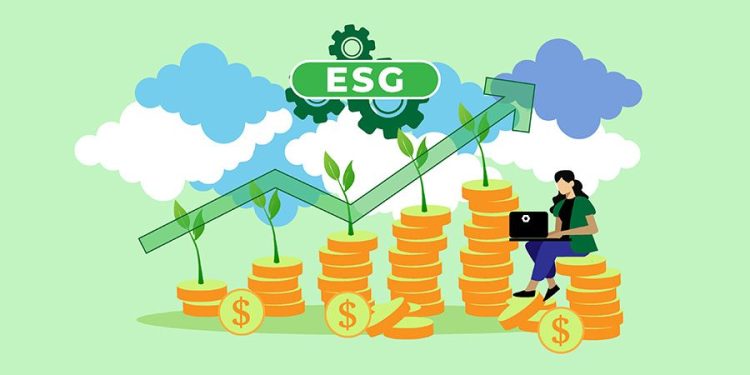Introduction
Over the past few years, environmental, social, and governance (ESG) factors have become increasingly central to investment strategies, with many investors and financial institutions championing the idea that companies adhering to ESG principles not only contribute positively to society but also deliver superior financial returns. Proponents argue that a strong commitment to ESG values can lead to better long-term financial performance, mitigate risks, and attract investors who care about sustainability and social responsibility. However, as the ESG landscape has evolved, significant questions have emerged about its true value for investors. Are ESG investments really benefiting those who embrace them? Or is the push toward responsible investing leading to empty promises and inflated metrics?
This article explores the growing prominence of ESG in the investment world, delves into various perspectives on its impact on returns, examines how corporate governance and social responsibility play a role in market performance, and highlights the controversies surrounding ESG metrics and the issue of greenwashing.
1. Defining ESG and Its Growing Prominence in Investment Strategies
Environmental, social, and governance (ESG) investing is an approach that considers factors beyond traditional financial metrics when evaluating investment opportunities. The “E” in ESG refers to environmental factors, such as a company’s carbon footprint, resource use, waste management, and commitment to renewable energy. The “S” covers social aspects, including a company’s treatment of employees, community engagement, diversity and inclusion efforts, and human rights policies. Finally, the “G” represents governance, which looks at how a company is managed, focusing on leadership, transparency, executive pay, shareholder rights, and overall corporate ethics.
In recent years, ESG investing has gained considerable momentum, with asset managers, institutional investors, and individuals increasingly prioritizing sustainability and ethical considerations in their investment decisions. This shift has been fueled by growing awareness of climate change, social inequality, and the need for better corporate accountability. The rise of ESG-focused exchange-traded funds (ETFs), mutual funds, and indexes, as well as the integration of ESG factors into traditional financial analysis, have made it easier for investors to adopt these strategies.
Several factors have contributed to the growing prominence of ESG investing, including the desire for long-term value creation, reputational risk mitigation, and regulatory pressures. Governments and regulators in various regions are implementing policies that encourage or mandate greater corporate transparency on ESG issues, while the younger, more socially-conscious generation of investors is also driving demand for more sustainable investment options.
2. Diverse Perspectives on Whether ESG Investments Deliver Superior Returns
One of the key debates surrounding ESG investing is whether these investments can deliver superior returns compared to traditional investment strategies. Proponents of ESG argue that companies with strong ESG practices are better positioned to manage risks, attract top talent, and adapt to changing market conditions. For example, companies focused on sustainability may benefit from increasing consumer demand for eco-friendly products and services, or they may avoid fines and reputational damage from environmental or social scandals.
Some studies suggest that ESG investments can indeed outperform traditional investments, particularly in terms of long-term financial performance. For instance, research by organizations like MSCI and Morningstar has shown that ESG-focused funds and indexes have at times outpaced their non-ESG counterparts in market returns, as companies with strong ESG practices may have better risk management and more efficient operations. Additionally, companies that address environmental and social challenges proactively may benefit from innovation and enhanced market competitiveness.
However, there are conflicting views regarding ESG’s impact on financial returns. Critics argue that ESG investing can limit potential profits by excluding companies in sectors that have traditionally delivered high returns, such as fossil fuels or tobacco. Some even suggest that ESG criteria can be overly restrictive, leading to a less diversified portfolio that misses out on opportunities in sectors with high growth potential.
Moreover, the lack of standardized metrics and inconsistent reporting on ESG factors makes it difficult for investors to assess whether a company’s ESG commitment truly translates into financial value. The absence of clear evidence linking ESG performance to superior returns has led some to question whether ESG investing is driven by ethical considerations or simply the desire to align with popular trends.

3. How Corporate Governance and Social Responsibility Impact Market Performance
Corporate governance and social responsibility are integral components of ESG investing, as they reflect how well companies manage risks and treat their stakeholders. Strong governance practices, such as transparency, accountability, and proper oversight, are seen as critical to long-term business success. Companies that prioritize good governance are less likely to be involved in scandals, mismanagement, or regulatory issues, all of which can significantly harm their reputation and financial performance.
For example, companies with diverse boards and leadership teams have been shown to make better decisions, as diverse perspectives can lead to more innovative problem-solving. Furthermore, companies that focus on employee well-being and community engagement often benefit from higher levels of employee satisfaction, loyalty, and consumer trust.
Social responsibility, on the other hand, has become increasingly important as consumers and investors demand that businesses operate in ways that benefit society. Companies that invest in their employees, treat them fairly, and contribute to social causes often experience improved brand loyalty and customer retention. Moreover, companies that address social issues such as inequality or access to healthcare may gain a competitive advantage as they are seen as leaders in corporate social responsibility.
Overall, the impact of corporate governance and social responsibility on market performance cannot be overstated. Companies that are committed to these principles tend to be more resilient in the face of challenges, and their long-term growth potential may be greater than that of companies with poor governance or a disregard for social issues.
4. The Controversy Surrounding ESG Metrics and Greenwashing Concerns
Despite the widespread adoption of ESG investing, the approach is not without its challenges. One of the most significant concerns is the lack of standardized metrics and reporting on ESG factors. While many companies now disclose ESG data, the information is often inconsistent, making it difficult for investors to compare companies on an apples-to-apples basis. Inconsistent reporting can lead to confusion, misinterpretation, and ultimately, a lack of confidence in ESG claims.
This has given rise to a phenomenon known as “greenwashing,” where companies exaggerate or misrepresent their ESG efforts to appeal to environmentally and socially conscious investors. Greenwashing undermines the credibility of the entire ESG investment ecosystem and raises questions about the effectiveness of relying on ESG metrics that are not subject to rigorous verification.
To address these issues, there have been calls for greater regulation and standardization in ESG reporting. Organizations like the International Financial Reporting Standards (IFRS) Foundation and the Global Reporting Initiative (GRI) are working to create more uniform reporting standards, but challenges remain in ensuring that companies adhere to these guidelines and that the information they provide is truly reflective of their ESG practices.
Conclusion
The ESG investing landscape is complex and multifaceted. While there is growing evidence that companies with strong ESG practices may be better positioned for long-term success, the impact of these factors on financial returns is still a topic of debate. Corporate governance and social responsibility play a significant role in shaping market performance, but challenges related to inconsistent ESG metrics and greenwashing continue to raise concerns for investors.
Ultimately, ESG investing represents a fundamental shift in how investors approach risk and reward, with an increasing emphasis on ethical and sustainable practices. For investors, navigating the ESG landscape requires careful due diligence and a commitment to understanding the true value of ESG factors. As the market for ESG investments matures and reporting standards improve, the full potential of ESG strategies may become clearer, providing greater confidence in their ability to deliver both financial and social value.






























